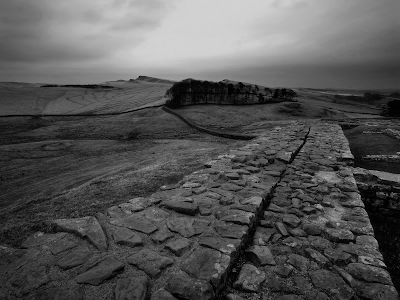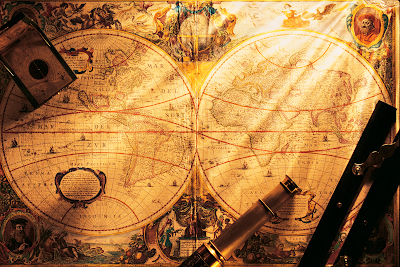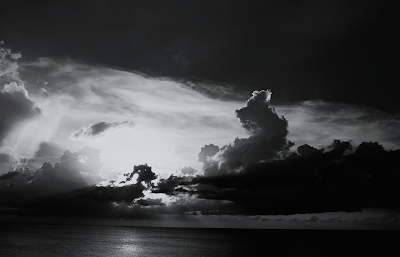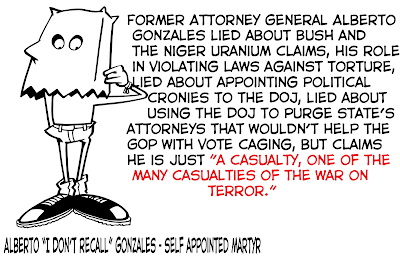 The Lies of Dick Cheney by Andy Worthington
The Lies of Dick Cheney by Andy WorthingtonOn December 11, the Senate Armed Services Committee issued a compelling report into the torture and abuse of prisoners in US custody (PDF), based on a detailed analysis of how Chinese torture techniques, which are used in US military schools to train personnel to resist interrogation if captured, were reverse engineered and applied to prisoners captured in the "War on Terror."
The techniques, taught as part of the SERE programs (Survival, Evasion, Resistance, Escape) include sleep deprivation, the prolonged use of stress positions, forced nudity, hooding, exposure to extreme temperatures, subjecting prisoners to loud music and flashing lights, "treating them like animals," and, in some cases, the ancient torture technique known as waterboarding, a form of controlled drowning that the torturers of the Spanish Inquisition called "tortura del agua."
The report rejected the conclusions of over a dozen investigations, conducted since the Abu Ghraib scandal in 2004, which identified problems concerning the treatment of prisoners in Iraq, Afghanistan and Guantánamo, but which were not authorized to gaze up the chain of command to blame senior officials for approving the use of torture by US forces, and for instigating abusive policies.
This enabled the administration to maintain, as it did with Abu Ghraib, that any abuse was the result of the rogue activities of "a few bad apples," but the Senate Committee report comprehensively demolished this defense. The authors wrote:
The abuse of detainees in US custody cannot simply be attributed to the actions of "a few bad apples" acting on their own. The fact is that senior officials in the United States government solicited information on how to use aggressive techniques, redefined the law to create the appearance of their legality, and authorized their use against detainees. Those efforts damaged our ability to collect accurate intelligence that could save lives, strengthened the hand of our enemies, and compromised our moral authority.
Those singled out for blame include President George W. Bush (for stripping prisoners of the protections of the Geneva Conventions in February 2002, which paved the way for all the abuse that followed), former defense secretary Donald Rumsfeld, Vice President Dick Cheney's former legal counsel (and now chief of staff) David Addington, former Pentagon general counsel William J. Haynes II, former Chairman of the Joint Chiefs of Staff General Richard Myers, former White House general counsel (and later US Attorney General) Alberto Gonzales, former White House deputy counsel Timothy Flanigan, former Assistant Attorney General Jay S. Bybee, former Justice Department legal adviser John Yoo, former Guantánamo commanders Maj. Gen. Michael Dunlavey and Maj. Gen. Geoffrey Miller, and Lt. Gen. Ricardo Sanchez, the former commander of coalition forces in Iraq.
The one senior official who was not mentioned -- presumably because of the talent for remaining behind the scenes that once earned him the secret service nickname "Backseat" -- was Dick Cheney. However, just four days later, as if to make up for his omission from the report, Cheney was interviewed by ABC News, and took the opportunity to present a detailed defense of the administration's national security policies, throwing down a very public gauntlet to critics of torture, Guantánamo, illegal wiretapping and the invasion of Iraq, and raising fears that he was only doing so because a Presidential pardon is just around the corner.
Cheney's most significant remark was his first admission in public that he was involved in approving the waterboarding of Khalid Sheikh Mohammed, the self-confessed mastermind of the 9/11 attacks (who, it should be noted, claimed responsibility for the attacks before he was captured by US forces). However, the entire interview is worth looking at, as Cheney's version of the truth does not stand up to scrutiny, and features ten lies that should not be allowed to pass without further comment and analysis.
1) On the supposed legality of unauthorized wiretapping
Asked what he thought about suggestions from Barack Obama's transition team that the Bush administration's homeland security policy "has basically been torture and illegal wiretapping, and that they want to undo the central tenets of your anti-terrorist policy," Cheney replied, "They're wrong. On the question of terrorist surveillance, this was always a policy to intercept communications between terrorists, or known terrorists, or so-called 'dirty numbers,' and folks inside the United States, to capture those international communications. It's worked. It's been successful. It's now embodied in the FISA statute that we passed last year, and that Barack Obama voted for, which I think was a good decision on his part. It's a very, very important capability. It is legal. It was legal from the very beginning. It is constitutional, and to claim that it isn't I think is just wrong."
THE LIE: Although the Bush administration secured Congressional approval for the Authorization for Use of Military Force (AUMF) in the week after the 9/11 attacks (the founding document of the "War on Terror," which granted the President seemingly open-ended powers "to use all necessary and appropriate force against those nations, organizations, or persons he determines planned, authorized, committed, or aided the terrorist attacks that occurred on September 11, 2001"), the approval for the warrantless surveillance of communications to and from the United States that followed on September 25 was neither "legal" nor "constitutional."
In a series on Dick Cheney in the Washington Post last summer, Barton Gellman and Jo Becker explained how, on the day of the 9/11 attacks, Cheney and David Addington swiftly assembled a team that included Timothy Flanigan and John Yoo to begin "contemplating the founding question of the legal revolution to come: What extraordinary powers will the President need for his response?" Gellman and Becker described how Flanigan, with advice from Yoo, drafted the AUMF, and Yoo explained that "they used the broadest possible language because 'this war was so different, you can't predict what might come up'."
In fact, as the authors point out, they "knew very well what would come next: the interception -- without a warrant -- of communications to and from the United States." Although warrantless communications intercepts had been forbidden by federal law since 1978, the administration claimed that they were "justified, in secret, as 'incident to' the authority Congress had just granted" the President, in a memorandum that Yoo finalized on 25 September. Far from being "legal" and "constitutional," therefore, the secret memorandum was the first brazen attempt by the key policy-makers (in the Office of the Vice President and the Pentagon) to use the AUMF as cover for an unprecedented expansion of presidential power that was intended to cut Congress, the judiciary, and all other government departments out of the loop.
2) On the definition of torture
Moving on to the allegations of torture, Cheney said, "On the question of so-called 'torture,' we don't do torture, we never have. It's not something that this administration subscribes to. Again, we proceeded very cautiously; we checked, we had the Justice Department issue the requisite opinions in order to know where the bright lines were that you could not cross. The professionals involved in that program were very, very cautious, very careful, wouldn't do anything without making certain it was authorized and that it was legal. And any suggestion to the contrary is just wrong."
THE LIE: The claim, "we don't do torture," which President Bush has also peddled on numerous occasions, is an outright lie. The definition of torture, as laid down in the UN Convention Against Torture, to which the US is a signatory, is "any act by which severe pain or suffering, whether physical or mental, is intentionally inflicted on a person." However, in the summer of 2002 (obviously with Cheney's knowledge), John Yoo, with input from Addington, Gonzales and Flanigan, drafted another secret memorandum, issued on August 1 (PDF), which has become known as the "Torture Memo." This extraordinary document -- one of the most legally manipulative in the whole of the "War on Terror" -- drew creatively on historical rulings about torture in countries including Northern Ireland and Bosnia, and attempted to claim that, for the pain inflicted to count as torture, it "must be equivalent in intensity to the pain accompanying serious physical injury, such as organ failure, impairment of bodily function, or even death."
Last summer, Yoo confirmed that Addington was responsible for another of the memo's radical claims -- that, as Commander in Chief, the President could authorize torture if he felt that it was necessary -- and also confirmed that a second opinion was signed off on August 1, 2002, which, unlike the first (leaked after the Abu Ghraib scandal in 2004) has never been made public. An unnamed source cited by Gellman and Becker explained that this second memo contained a long list of techniques approved for use by the CIA, which included waterboarding, but apparently drew the line at threatening to bury a prisoner alive.
As a result, all Cheney's talk of "careful" and "cautious" legal advice is nothing more than a failed attempt to justify redefining torture. Outside of the White House and the Pentagon, it has always been abundantly clear that the SERE techniques (let alone the more extreme methods approved for use by the CIA) are torture, pure and simple, and the Senate Committee's recent report quotes extensively from a number of bodies -- the Air Force, the Defense Department's Criminal Investigative Task Force, the Army's International and Operational Law Division, the Navy and the Marine Corps -- who were opposed to their implementation for this very reason. Others, who took their complaints to the highest levels, were Alberto J. Mora, the head of the Naval Criminal Investigative Service, and the FBI.
3) On intelligence obtained through torture
Following his defense of the interrogation techniques authorized by the administration, Cheney continued: "Did it produce the desired results? I think it did. I think, for example, Khalid Sheikh Mohammed, who was the number three man in al-Qaeda, the man who planned the attacks of 9/11, provided us with a wealth of information. There was a period of time there, three or four years ago, when about half of everything we knew about al-Qaeda came from that one source."
THE LIE: With exquisite timing, Cheney's bombastic pronouncements about the torture of Khalid Sheikh Mohammed (KSM) and its supposed value coincided with the publication, in Vanity Fair, of an article by David Rose, in which a number of senior officials from both the FBI and the CIA directly refuted Cheney's claims. The article, which is worth reading in its entirety, focused primarily on the torture of Abu Zubaydah, Binyam Mohamed and Jose Padilla (which I have discussed at length before), but there were also key insights into the torture of KSM. Although President Bush claimed that KSM had provided "many details of other plots to kill innocent Americans," a former senior CIA official, who read all the interrogation reports from KSM's torture in secret CIA custody, explained that "90 percent of it was total fucking bullshit," and a former Pentagon analyst added, "KSM produced no actionable intelligence. He was trying to tell us how stupid we were."
In addition, Cheney's claims about KSM were directly contradicted by Jack Cloonan, a senior FBI operative whose torture-free interrogation of al-Qaeda operatives in the years before 9/11 provides an object lesson in how the administration should have operated afterwards. Disputing the unspecified claims that, as Cheney put it, the interrogation of KSM had produced "a wealth of information," Cloonan said, "The proponents of torture say, 'Look at the body of information that has been obtained by these methods.' But if KSM and Abu Zubaydah did give up stuff, we would have heard the details." Rose added that a former CIA officer asked, "Why can't they say what the good stuff from Abu Zubaydah or KSM is? It's not as if this is sensitive material from a secret, vulnerable source. You're not blowing your source but validating your program. They say they can't do this, even though five or six years have passed, because it's a 'continuing operation.' But has it really taken so long to check it all out?"
However, what was probably the most damning opinion was offered by FBI director Robert Mueller:
I ask Mueller: So far as he is aware, have any attacks on America been disrupted thanks to intelligence obtained through what the administration still calls "enhanced techniques"?
"I'm really reluctant to answer that," Mueller says. He pauses, looks at an aide, and then says quietly, declining to elaborate: "I don't believe that has been the case."




































